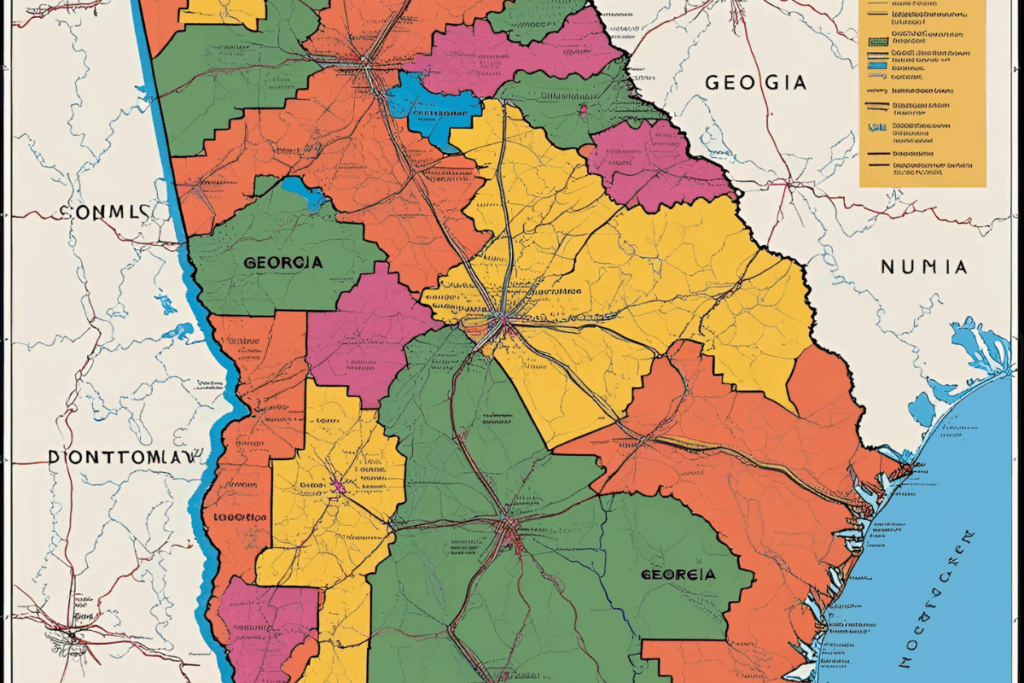It is difficult to fully capture the devastating effects that drug abuse and addiction have had on our state. One way to explore this ongoing public health concern is by reviewing Georgia addiction statistics.
Are you or a loved one struggling with addiction? Our team is available now to answer your questions, discuss treatment options, and verify your insurance. Take the first step toward healing—call us today to get started.
Georgia Addiction Statistics
The U.S. government began surveying Americans about drug use and related concerns in 1971. Since 2002, this effort has been referred to as the National Survey on Drug Use and Health (NSDUH).
According to NSDUH data from 2021 and 2022, about 1.38 million adults (ages 18 and above) and 85,000 adolescents (ages 12-17) in Georgia have a substance use disorder, which is the clinical term for addiction.
Georgia addiction statistics, as well as the prevalence of substance use disorders throughout the U.S. as a whole, are fueled in large part by the compulsive use of alcohol and opioids.
Alcohol
NSDU data indicates that about 839,000 adults and 24,000 adolescents in Georgia have alcohol use disorder, or alcoholism.
The U.S. Centers for Disease Control and Prevention (CDC) has also reported the following about excessive alcohol use in Georgia:
- In 2022, 15.2% of adults in Georgia engaged in binge drinking in the previous 30 days. Binge drinking is defined as having five or more drinks (for men) or four or more drinks (for women) in a brief period of time.
- Across the U.S., the national rate of past-month binge drinking was 17%. Only six states had a lower binge-drinking rate than Georgia.
- Adults in Georgia who engaged in binge-drinking averaged 5.5 drinks per episode. This was a higher average than 18 other states and the District of Columbia.
- The CDC estimates that the economic impact of excessive alcohol use in Georgia was $6.9 billion in 2022. The median cost of excessive alcohol use among all 50 states and DC was $3.5 billion. Only nine states had higher alcohol-related costs than Georgia.
Opioids
According to the Kaiser Family Foundation (KFF), about 1.1% of adolescents and 2.2% of adults in the U.S. have opioid use disorder, which is the clinical term for addiction. The category of opioids includes heroin, morphine, fentanyl, and the primary active ingredient in most prescription painkillers.
In Georgia, the KFF reported that 1.6% of adolescents and 2.4% of adults are addicted to opioids. Compared to other states Georgia has the second-highest rate of adolescent opioid addiction (trailing only Nebraska), and the 10th-highest rate of opioid addiction among adults.
The KFF based these statistics on data collected during the NSDUH in 2022 and 2023.

Georgia Drug Overdose Statistics
The National Center for Health Statistics, which is part of the CDC, reported the following overdose death statistics for Georgia:
- From January 2014—January 2015, the state of Georgia recorded 1,206 overdose deaths.
- From January 2024—January 2025, there were 1,899 overdose deaths in Georgia. This represents a 36.5% increase from 2014-2015.
- In the past decade, the 12-month period with the highest number of drug overdose deaths in Georgia was November 2021—November 2022, when the state recorded 2,655 fatalities.
Addiction Warning Signs
If you are concerned that someone in your life may have become addicted to alcohol or another drug, keep an eye out for warning signs such as:
- Using the substance in a greater amount or for a longer period of time than they intended
- Spending considerable amounts of time acquiring and using the substance, as well as recovering from its effects
- Needing to use larger amounts of the substance to experience the effects they are seeking (which is an indication that they have developed tolerance)
- Using the substance in circumstances that are especially hazardous, such as by combining alcohol with other drugs or driving while impaired
- Continuing to use the substance even after incurring some type of harm (such as developing medical or mental health concerns, being arrested, or losing a relationship) due to their prior substance use
- Becoming angry or agitated, or beginning to experience withdrawal symptoms, when they’re unable to use the substance
- Claiming they want to stop drinking or using other drugs, but being unable to do so
Other potential warning signs that your loved one has developed an addiction include:
- Sudden, unpredictable changes in mood, attitude, and energy
- Frequent absenteeism from work or school
- Downturn in performance at work or in school
- Failing to keep appointments, pay bills, or fulfill other responsibilities
- No longer participating in activities that used to be important to them
- Withdrawing from friends and family members
- Lying or being otherwise deceptive about how they have been spending their time
- Significant unintentional weight gain or loss
- Unexplained financial problems
Someone who exhibits the warning signs listed above may be in crisis due to an addiction, a mental health condition, or another problem. In any case, an ideal first step is for them to consult with their doctor or be assessed by a reputable addiction treatment center in their area.
In addition to determining if they have developed a substance use disorder, a thorough evaluation can also identify co-occurring medical or mental health concerns. With that information, the professional who conducts their assessment should also be able to recommend the treatment options that align most closely with your loved one’s unique needs.
Addiction Resources in Georgia
Untreated addiction can be an insolating experience, both for the person who has the condition and for those who care about them. If you or someone that you care about has been struggling with compulsive substance abuse, please know that you are not alone.
Addiction resources in Georgia include:
- Georgia DBHDD Substance Abuse Resources
- Georgia Overdose Prevention
- Georgia Council for Recovery
- Atlanta Policing Alternatives & Diversion Initiative
- Alcoholics Anonymous (AA) in Georgia
- Georgia Al-Anon and Alateen
- SMART Recovery
Also, the 988 Suicide & Crisis Lifeline is a free national service staffed by trained professionals who can assess your needs and connect you with appropriate resources in your area. To contact the lifeline, call or text 988, or visit https://988lifeline.org/.
Find Addiction Treatment in Georgia
Serenity Grove is a premier source of personalized care for adults whose lives have been disrupted by substance abuse and addiction. We also offer dual diagnosis programming for patients who also have anxiety, depression, or other co-occurring mental health conditions.
Treatment options at our drug rehab in Athens, GA, include detoxification (detox), residential care, a partial hospitalization program (PHP), an intensive outpatient program (IOP), and an outpatient program. At each level of care, you can expect to receive customized services and comprehensive support from a team of experienced and compassionate professionals.
To learn more about how we can help you or a loved one, or to schedule a free consultation, please visit our Admissions page or call us today.


